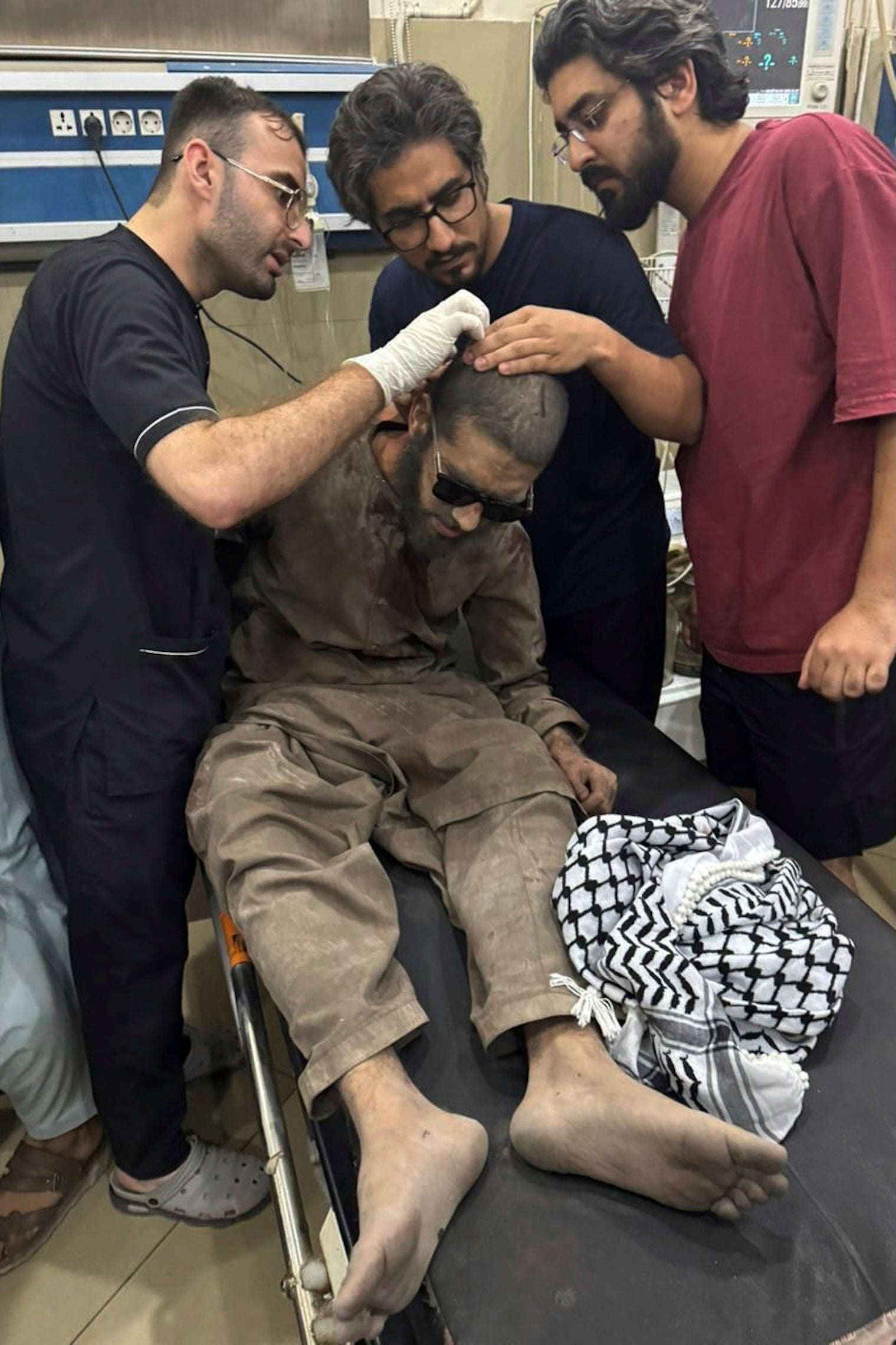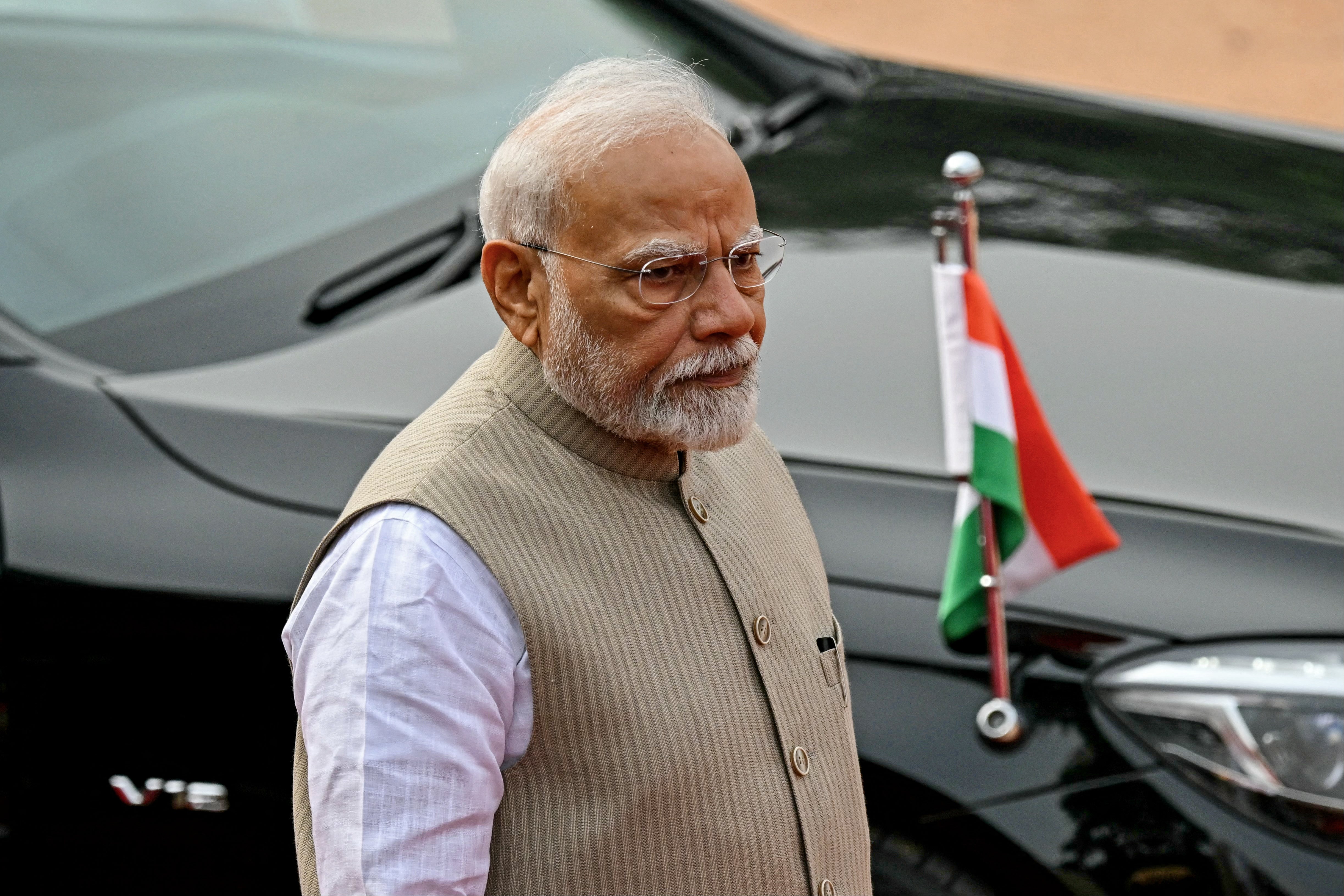Explosions were heard in several places in Pakistan and Pakistan-administered Kashmir on Wednesday as India said it had attacked “terrorist infrastructure” in nine sites and Pakistan vowed to respond to the attacks.
India fired missiles across the border into Pakistani-controlled territory early on Wednesday at 1.44am local time (8.14pm GMT).
Up to 26 strikes were fired on at least six locations, a Pakistani military spokesperson told news agencies.
At least eight civilians, including a child, were killed in India’s pre-dawn airstrikes, Islamabad said. At least 35 others were injured.
India said it was striking the infrastructure “where terrorist attacks against India have been planned” in retaliation against the mass shooting of tourists on 22 April in Indian-administered Kashmir.
“A little while ago, the Indian armed forces launched ‘Operation Sindoor’, hitting terrorist infrastructure in Pakistan and Pakistan-occupied Jammu and Kashmir from where terrorist attacks against India have been planned and directed,” the Indian government said in a statement.
“Our actions have been focused, measured and non-escalatory in nature. No Pakistani military facilities have been targeted. India has demonstrated considerable restraint in selection of targets and method of execution,” it said.
The missiles, early on Wednesday, struck locations in Pakistan-administered Kashmir and in the country’s eastern Punjab province, according to three Pakistani security officials. One of them struck a mosque in the city of Bahawalpur in Punjab, where a child was killed and a woman and a man were injured, one official said.
Five Indian planes have been shot down and some soldiers have been taken prisoner, Pakistani officials claimed. The Indian government has made no official statement, but earlier an Indian official speaking to Reuters said a fighter jet had crashed in Indian administered Kashmir and the pilot was taken to hospital.
The officials said Pakistan had launched retaliatory strikes, without providing any details. The officials spoke on the condition of anonymity because they were not authorised to speak to the media on the record.

The Indian Army said three Indian civilians have been killed following military action by Pakistani troops in Indian-administered Kashmir.
“We do not want this situation to escalate,” Khawaja Muhammad Asif, the Pakistani defence minister, told Bloomberg. “But if there are hostile acts initiated from the Indian side, we have to respond.”
Pakistani authorities in capital Islamabad closed schools on Wednesday after the strikes.
How did we get here?
The development comes amid heightened tensions between the nuclear-armed neighbours in the aftermath of an attack on Hindu tourists in Indian Kashmir last month.
India blames Pakistan for backing the gunmen behind the 22 April killing of 26 people, most of them Indian Hindu tourists, and has described it as a terror attack. Islamabad denies the charge.

Both countries have expelled each other’s diplomats and nationals, as well as closed their borders and shuttered airspace. India has also suspended a critical water-sharing treaty with Pakistan.
A Pakistani minister last week said his country had “credible intelligence” that an Indian strike was imminent. There has been no military action from India so far.
Here’s where the situation stands since the attack:
World leaders urge de-escalation
After an initial wave of condemnations of the attack on tourists, world leaders called for both sides to avoid escalation.
Reacting to the rising India-Pakistan tensions, US president Donald Trump called it a shame and hoped that it would end “very quickly”.
“It’s a shame, we just heard about it,” Mr Trump told reporters at the White House. “I guess people knew something was going to happen based on a little bit of the past. They’ve been fighting for a long time.”
The US president added: “I just hope it ends very quickly.”
US secretary of state, Marco Rubio, said on X he was “monitoring the situation between India and Pakistan closely” while adding that Washington will continue to engage the nuclear-armed Asian neighbours towards a “peaceful resolution.
The Indian embassy in Washington said Indian national security adviser, Ajit Doval, spoke with Mr Rubio and briefed him about India’s military actions.
Senator Jeanne Shaheen, the ranking member of the US Senate’s foreign relations committee, has urged restraint, saying she is “gravely concerned by reports of military escalation between India and Pakistan.”
“The world can ill afford instability in South Asia,” she wrote in a statement.
United Nations Secretary-General, António Guterres, was “very concerned” about Indian military operations in Pakistan and Pakistan-administered Kashmir, his spokesperson said on Tuesday while calling for “maximum military restraint from both countries”.
“The world cannot afford a military confrontation between India and Pakistan.”
International pressure has been piling on both New Delhi and Islamabad – which fought two of their three wars over disputed Kashmir – to ease tensions. Senior officials from the US, China, Russia and Saudi Arabia have urged both sides to exercise restraint. Iran has offered to mediate.
Meanwhile, both nations have launched an aggressive diplomatic campaign to shore up support for their positions.

India has made efforts to highlight what it called the “cross-border link” to the attack by briefing diplomats of dozens of countries.
“The diplomatic outreach this time has been quite extensive and the idea for India would be to showcase whatever evidence it has to its partners and to make a case that whatever actions might be coming from its side has the support of its partners and allies,” said Harsh Pant, foreign policy head at the Observer Research Foundation think tank in New Delhi.
Pakistan has offered to cooperate with an international investigation into the attack and reached out to dozens of foreign diplomats. Islamabad, however, said that it will match or exceed any military action by India.
Tensions on the border
The Indian army has said its troops have exchanged gunfire with Pakistani soldiers along the de facto border, the Line of Control, in Kashmir, blaming the neighbour for unprovoked firing for 10 straight nights. Islamabad, meanwhile, has accused India of violating a ceasefire.

In Kashmir, Indian forces have launched a huge operation to hunt the April 22 attackers. At least 2,000 people have been detained and questioned. Some have been arrested under anti-terrorism laws that allow authorities to detain people without formal charges. Indian forces also blew off at least nine family homes of suspected rebels, who have been fighting for independence or merger with Pakistan.
The crackdown has led to fear and anxiety in Kashmir, stirring traumatic memories of the region’s decades-long insurgency and India’s brutal response.
Praveen Donthi, senior analyst with the International Crisis Group, said “Kashmiris are always the first to bear the brunt of any political or military tensions between India and Pakistan.”
“The collective punishment imposed on Kashmiris and the state violence unleashed against them further inflames the conflict,” Donthi said.
On Monday, Pakistan’s military test-fired a short-range missile, the second test launch since a medium-range ballistic missile on Saturday.
India’s navy also test-fired missiles last week.
In 2019, a skirmish between the two countries almost spiralled out of control, before US intervention eased tensions.


